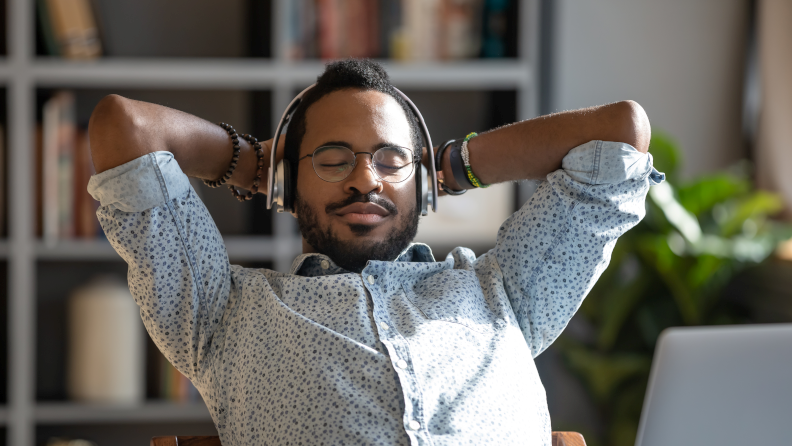How to manage anxiety
Mental HealthArticle19 November 2021
Anxiety is the most common Australian mental health challenge. In fact, one in three women and one in five men experience anxiety, so if you find your life affected by persistent, excessive worry, then you’re not alone.
The good news is that anxiety can be managed, and there are many effective ways to get your symptoms under control and move towards wellness.
Knowing your anxiety
Anxiety symptoms can vary in different people and different situations. They can include feeling confused, experiencing your chest tightening and heart racing, or becoming overcome with worry. Anxiety Australia clinical psychologist Catherine Madigan provides some tips for spotting anxiety. “If you’re having difficulty falling asleep, feeling light headed, dizzy, nauseous or agitated, having trouble concentrating, sweating, shaking or hyperventilating, then you may have anxiety,” she said.
Of course, everyone can become anxious or nervous outside their comfort zone. This is the body’s natural self defence mechanism. But there’s a point at which it’s no longer something you put up with. “It’s about whether your anxiety is facilitating your performance – for example, helping you perform well during an exam or when you’re public speaking – or impairing your performance,” Madigan explains.
Psychologist Dr Jeremy Adams adds: “A lot of people assume that because they feel symptoms of anxiety, something is wrong. In fact, there is nothing wrong with them – apart from the fact that a normal part of their brain has been over-activated. And it can be reprogrammed.”
Anxiety management strategies
Anxiety can range from occasional or regular anxiety or panic attacks, through to a diagnosed anxiety disorder. Whichever end of the spectrum you’re at, there are options for dealing with your anxiety.
Look at your lifestyle
Eating well and looking at what’s going into your body is vital for those who are prone to anxiety. “Nicotine and caffeine are stimulants that exacerbate anxiety, so it’s important to cut back on those things,” says Madigan. “Also cut back on alcohol, as it has a depressive effect.”
Exercise, too, can be an effective tool in preventing anxiety. “For those with moderate to mild anxiety, half an hour of exercise five times a week is equally as effective as medication,” Madigan says.
Remove or decrease your triggers
It’s important to know the things impacting your anxiety levels. “Look into the things that are getting you anxious in the first place,” Adams suggests. “If your environment, job or relationship are constant causes of stress, think about whether that is really the best place for you to be. Rather than continuing to expose yourself to a high-stress environment, think about whether you have other options. If you don’t have other options, you just have to learn how to cope, but if you do have other options you need to consider them.”
Stress and anxiety work can together to create a highly panicked reaction to a situation. “I recommend to my clients that they do some form of meditation and stress reduction,” says Adams. Other things you can do to lower your stress levels include reading, gardening, listening to music or undertaking any other activities you enjoy. Beyond Blue also has some great suggestions for easing muscle tension.
Download free assistance
Madigan suggests downloading a free app, such as Breathe2Relax, can help when you’re feeling anxious. As you begin to recognise how you feel when an anxiety attack is starting, you might be able to take a couple of minutes away to avoid it worsening.
Apply as much logic as possible
Logic and anxiety don’t always go hand-in-hand, however increasing your logical skillset can be worthwhile for those moments that threaten to escalate out of control. “In modern treatments, the idea is to recognise the anxious thoughts, know why they exist, and get back to the moment,” Adams says. This is a strategy that can build up resilience and help you do things important to you. Adams sums it up as: “Recognise the anxiety for what it is and then proceed with the task anyway, or build up to it by chunking the task down into small steps that you can tackle over time.”
Seek professional help
“If you go to your GP and request a mental health plan, you can be referred to a psychologist and have 10 sessions subsidised by Medicare each year,” Madigan suggests as a financially viable way to seek assistance. Other ways professionals can help you include cognitive behavioural therapy, medication or meditation techniques. These are strategies that will help you not only manage your anxiety, but also find the causes.
If you’re experiencing anxiety, please contact your GP for further help in managing it.
Research
- http://www.beyondblue.org.au/the-facts
- http://www.beyondblue.org.au/the-facts/anxiety
- http://www.beyondblue.org.au/docs/default-source/senseability/relaxation-techniques.pdf?sfvrsn=2
This article was provided by SuperFriend, a national mental health organisation helping workplaces improve mental health and wellbeing for their employees and customers.



